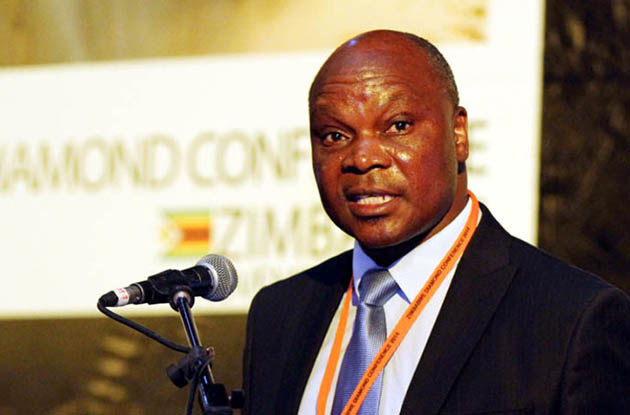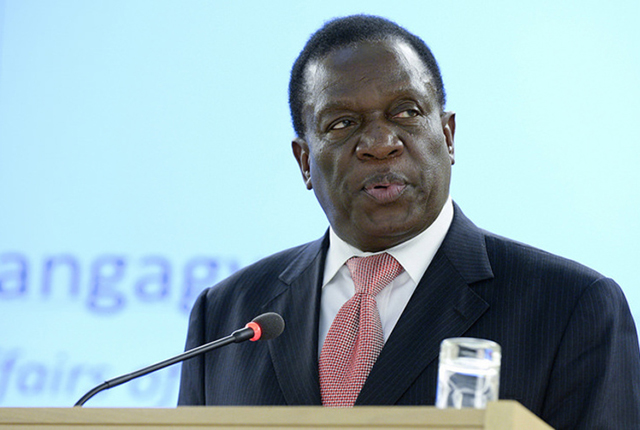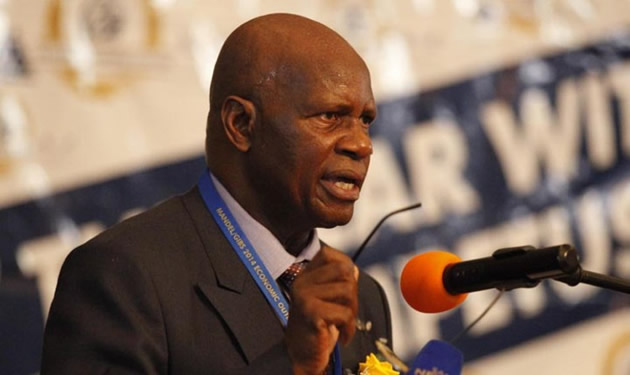‘Investors warm up to Zim mining’

Business Reporter—
INVESTORS have now accepted that certain Government policies they denounced were critical in addressing historical economic imbalances and have since renewed interest in Zimbabwe’s mining sector, Mines and Mining Development Minister Walter Chidkwa said. In an interview with a local radio station on the sidelines of the Mining Indaba in Cape Town, South Africa last week, Minister Chidhakwa said the general perception had been that Zimbabwe was not investor friendly, but the thinking had started changing.
The negative perception stemmed from the contention that Zimbabwe’s policies on issues such as the fast track land reform programme and indigenisation and empowerment law contrasted conventional investor expectations on friendly investment conditions.
“The perception is that Zimbabwe is not investor friendly, but over the past few years there has been very strong realisation and recognition that the issues that were on the table, namely the land reform programme, were not a matter of perception, it was a matter of reality and ensuring that local communities do, indeed, have access to the land they now use to grow personal economies.
“Tobacco farming, where more than 100 000 mostly indigenous farmers eke out a living, provides the compelling evidence of the success of the Government’s land reform programme that saw over 260 000 families being resettled on prime agriculture land.
“Prior to this, only about 4 500 white farmers occupied over 21 percent, 8,2 million hectares, of Zimbabwe’s total land area, including high rainfall natural regions with fertile land for farming.
“Because they (investors now) understand that background, I think people have now understood that Zimbabwe is trying to resolve colonial deficiencies, but in the process trying to ensure that we carve a part for foreign investors,” Minister Chidhakwa said.
Zimbabwe’s mining industry is focused on a diverse range of small to medium mining operations. The most important minerals mined in Zimbabwe include gold, asbestos, chromite, coal and base metals. The mining industry contributes approximately 8 percent towards the country’s gross domestic product.
However, the Chamber of Mines of Zimbabwe argues that the mining industry, which generates over 60 percent of the country’s annual foreign exchange earnings, accounts for as much as 12 to 16 percent of GDP and comes second, only after agriculture.
Government has designated the mining sector as the anchor for Zimbabwe’s economic growth in the short to medium terms driven by key minerals such as gold, platinum, coal, nickel and diamonds.
Minister Chidhakwa said Zimbabwe needed foreign investment to come into areas where it does not have capacity such as capital intensive technology, equipment and machinery, but where basic to medium technology is required there was need to capacitate locals to be able to participate in the economy. The sector needs about $5 billion to recapitalise in the next 5 years.
Minister Chidhakwa also noted that most multinational mining firms were gradually warming up to Africa’s mining vision that they need to move away from the colonial mentality of self-centeredness to an approach that seeks to ensure communities in which they extract minerals also benefit from their mining activities.
“Therefore, the companies in their boardrooms must ensure that the discussion takes centre stage. When you listen to discussions that took place here, you can see clearly the inclusion of civil society and individuals who were speaking about participation of communities. It means the companies are listening.”
He also pointed out that the young people who qualified to be skilled personnel in the mining industry over the last 30-40 years had gathered significant experience and would not want to end just being workers of the companies, but want to participate in mining.










Comments